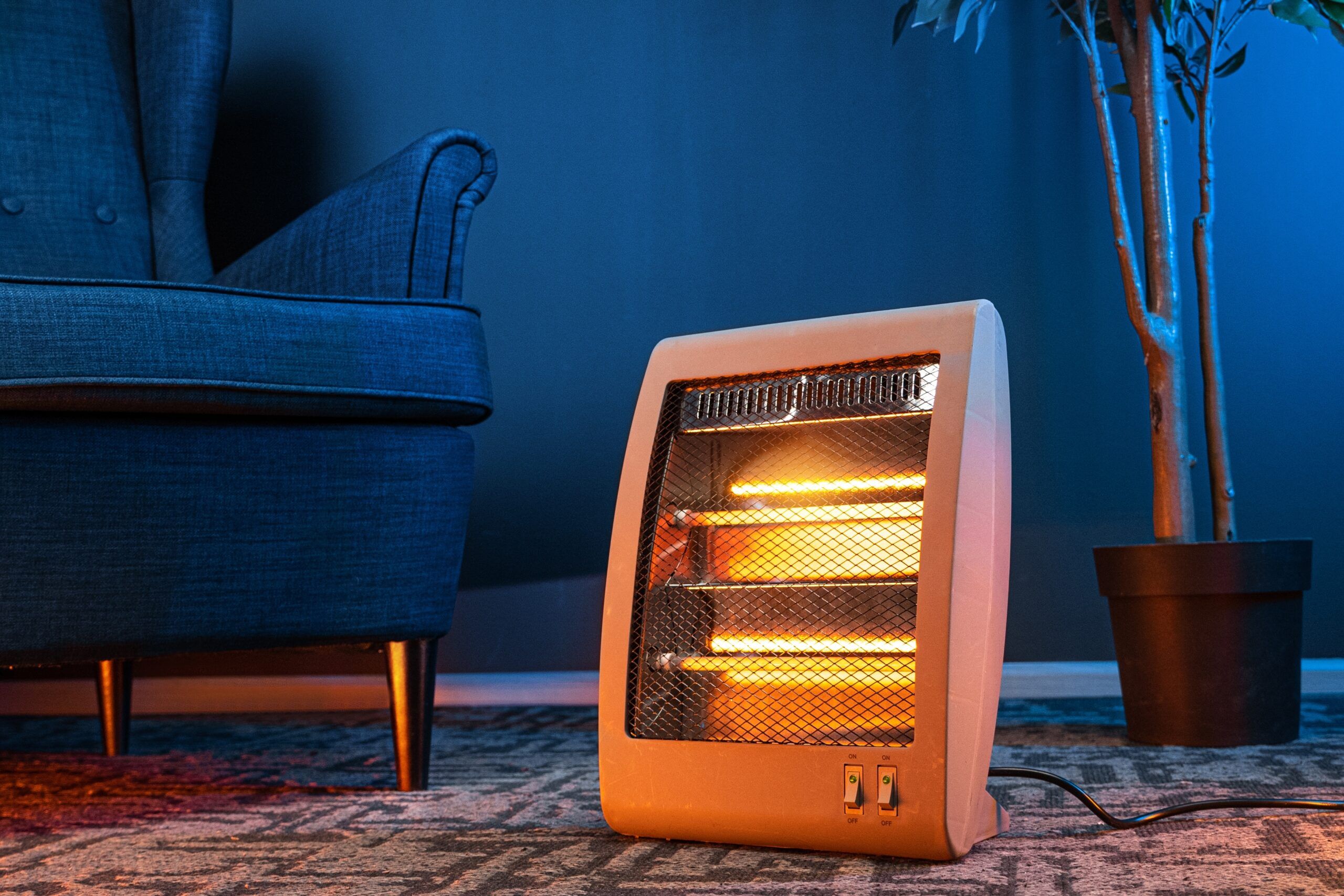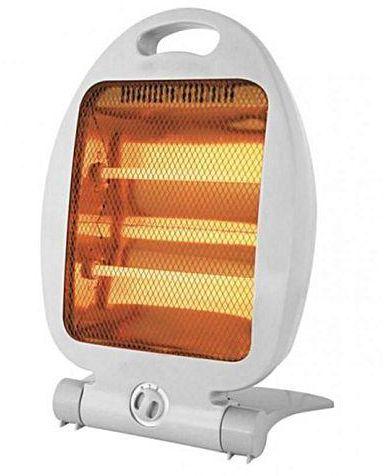How Do You Choose the Right Heater for Winter?
A heater is an essential appliance designed to keep your home warm and comfortable during cold weather. Available in various types such as electric, gas, and oil-filled models, heaters provide efficient heating for any room size. They are energy-efficient and come with features like portability, safety controls, and adjustable settings to ensure optimal warmth and convenience.
As winter sets in, keeping your home warm and cozy becomes a top priority. While the cold weather brings comfort in the form of hot cocoa and cozy blankets, it also demands that we take action to maintain a comfortable temperature indoors. Choosing the right heater for winter is crucial, as it not only impacts your comfort but also affects your energy bills. When considering the price of heaters in Pakistan, it's important to balance cost with performance to ensure you find the best option for your needs.

1. Understand the Types of Heaters
The first step in choosing the right heater for winter is to understand the different types available. Each type has its own advantages, and the best choice depends on your specific needs. Here are the most common types of heaters:
a. Electric Heaters
Electric heaters are the most popular and convenient choice for many homeowners. They come in various styles, such as space heaters, baseboard heaters, and oil-filled radiators. These heaters are easy to use, require no installation, and can be moved from room to room. They are ideal for heating small to medium-sized rooms and offer quick heat.
Pros:
- Portable and easy to use
- No installation required
- Safe and energy-efficient
Cons:
- Can be expensive to operate over time if used frequently
b. Gas Heaters
Gas heaters are a great option for those looking to save on energy costs. They use natural gas or propane to generate heat and can be either portable or installed as part of your home’s heating system. Gas heaters are particularly effective for larger rooms and can provide a constant, reliable heat source.
Pros:
- Lower operating costs compared to electric heaters
- High heat output, suitable for large rooms
Cons:
- Installation required for permanent models
- Requires a gas line, making it less portable
c. Oil-Filled Heaters
Oil-filled heaters are a type of electric heater, but they work a bit differently. These heaters use oil as a heat reservoir. The oil is heated by electricity and then circulates inside the unit, providing a steady and consistent source of heat. These are ideal for areas where you need long-lasting heat, as they continue to warm even after being turned off.
Pros:
- Silent operation
- Retains heat for a long time, reducing energy consumption
Cons:
- Takes longer to heat up
- Larger and bulkier than other options
d. Convection Heaters
Convection heaters work by warming the air in a room, which then circulates and rises, gradually warming the entire space. These are common in homes with central heating systems but are also available as portable units. They can be used to heat large spaces effectively.
Pros:
- Ideal for heating larger rooms
- Distribute heat evenly throughout the room
Cons:
- Slower heat-up time compared to other heaters
e. Infrared Heaters
Infrared heaters work by emitting infrared radiation, which directly heats objects and people in the room rather than the air. This makes them more efficient at providing immediate warmth. They are commonly used for spot heating, and some models are portable.
Pros:
- Quick and direct heat
- Ideal for heating specific areas or spots
Cons:
- Not effective for heating large spaces
- Can cause uneven temperature distribution

2. Consider Room Size and Heating Capacity
One of the most important factors in choosing the right heater is the size of the room you need to heat. A heater that works well in a small room may struggle to heat a larger space. To select the right heater, you need to consider the heating capacity and the size of the area you want to warm.
a. Small Rooms (Under 150 sq ft)
For small rooms like bedrooms, home offices, or bathrooms, a small electric heater or infrared heater can be ideal. These heaters are portable and provide sufficient warmth for smaller spaces without wasting energy. Oil-filled heaters also work well in smaller rooms, providing consistent heat without needing constant adjustments.
b. Medium Rooms (150 - 300 sq ft)
For medium-sized rooms, you might want to choose a convection heater, an oil-filled heater, or a slightly more powerful electric heater. These options can distribute heat effectively and efficiently in rooms like living rooms or dining rooms.
c. Large Rooms (300 sq ft and above)
Larger rooms require more powerful heating. Gas heaters, large convection heaters, or oil-filled radiators with higher wattage are better suited for these spaces. For rooms with vaulted ceilings or open spaces, a gas or convection heater can quickly warm the air and maintain a comfortable temperature.
3. Energy Efficiency and Cost
Energy efficiency is a crucial factor to consider when choosing a heater. While gas heaters tend to be cheaper to operate than electric models, the initial cost of installation can be high. Electric heaters are often more affordable upfront, but their operating costs can add up over time if you use them frequently.
To make an informed decision:
- Check Energy Ratings: Many heaters have an energy efficiency label that indicates how well they convert electricity or gas into heat. Look for energy-efficient models, especially if you plan to use your heater frequently.
- Consider Room Insulation: If your home is well-insulated, your heater won’t have to work as hard, which can help save energy. Proper insulation can reduce your heating needs by keeping the warm air inside, allowing heaters more energy-saving and reducing overall energy consumption.
Tips for Energy Efficiency:
- Use timers or thermostats to control when the heater is on.
- Turn off the heater when you leave the room.
- Close doors and windows to keep heat in and cold out.
4. Safety Features
Safety should always be a priority when choosing a heater, particularly if you have children or pets. Look for heaters with built-in safety features to ensure peace of mind.
Important Safety Features to Consider:
- Overheat Protection: This feature automatically turns off the heater if it gets too hot, preventing the risk of fire.
- Tip-Over Protection: For portable heaters, this feature shuts the unit off if it gets knocked over.
- Cool-Touch Surfaces: Heaters with cool-touch exteriors are safer, especially in homes with children or pets.
- Automatic Shut-Off: Some heaters come with timers or thermostats that automatically turn the unit off once the room reaches the desired temperature.
5. Noise Levels
If you plan to use your heater while you’re working or sleeping, noise levels can be a significant concern. Gas and oil-filled heaters tend to be quieter than electric or convection heaters, which may produce a humming sound during operation. Infrared heaters are also generally silent, making them a good choice for bedrooms or other quiet spaces.
6. Portability and Installation
If you need a heater that can move between rooms, portability is key. Electric heaters, infrared heaters, and oil-filled radiators are usually lightweight and easy to move. However, gas heaters often require installation and are typically fixed in place. If you're renting or want the flexibility to use the heater in different areas of your home, look for the best heaters for home that are portable, easy to store, and move around to ensure maximum convenience and warmth.
7. Budget Considerations
Your budget will play a big role in choosing the right heater. While gas heaters can have a higher initial installation cost, they might save you more money in the long run due to lower operating costs. Electric heaters, on the other hand, are affordable but may increase your electricity bills.
Set a budget that includes both the upfront cost of the heater and its long-term operating costs. If you’re concerned about electricity bills, consider investing in an energy-efficient model or a gas heater that’s cheaper to run.

Conclusion
the right heater for winter depends on factors like room size, energy efficiency, and safety features. Whether you need a portable electric heater or a powerful gas model, selecting the right one will ensure your home stays warm and comfortable throughout the season. For the best selection of heaters, visit selectronics.com, where you'll find a variety of options to suit your heating needs and budget. Stay cozy this winter with the perfect heater.
Contact
For any inquiries or assistance, feel free to contact us at 0323 5309888. We're happy to help with all your needs.
What's Your Reaction?





















